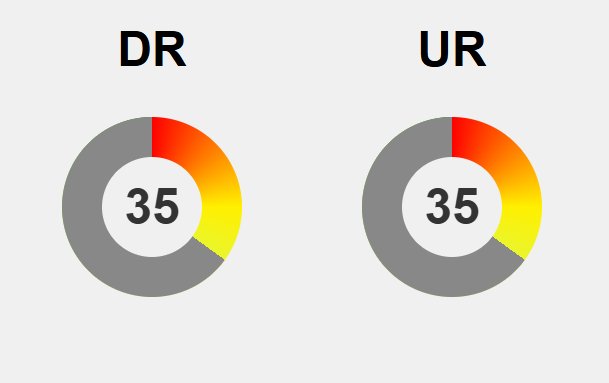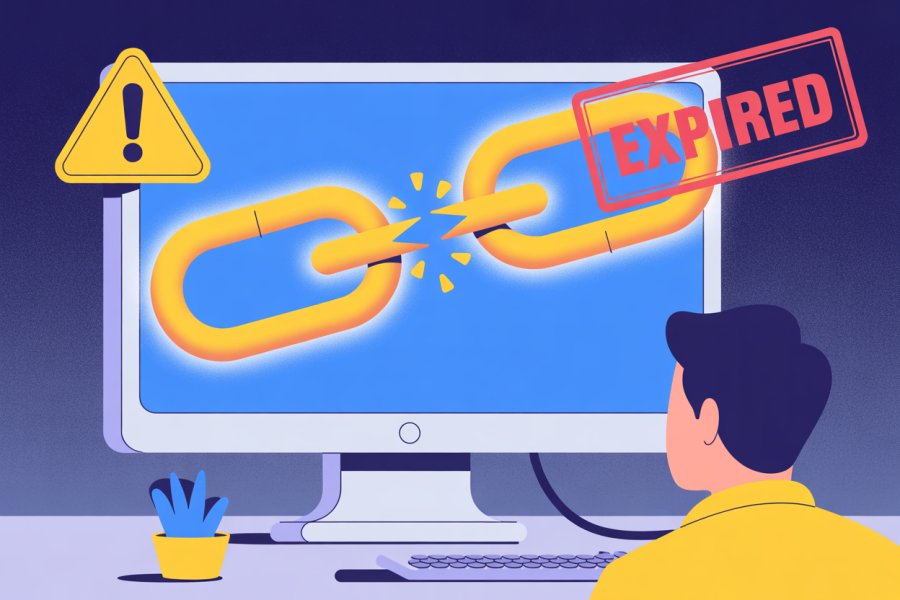What do the legendary journeys of Odysseus and the modern struggles of Batman reveal about the true essence of heroism? Both figures, from vastly different worlds, exemplify resilience, wit, and unwavering determination in the face of insurmountable challenges. Odysseus’s cunning navigation through divine wrath and mythical monsters contrasts with Batman’s strategic battles against urban villains, yet both rely on mental toughness over superpowers. Their internal motivations—love, duty, justice, trauma—shape the tone and depth of their stories, illustrating that heroism is as much an internal journey as an external victory. Their tales teach us vital lessons: perseverance, strategic thinking, confronting inner demons, and sacrifices that forge true strength. As we reflect on their legacies, we are challenged to consider—what inner qualities do we need to face our own challenges? Their stories remind us that heroism begins within, waiting to be unlocked by resilience, purpose, and cleverness.
Heroic Resilience and Wit: Lessons from Odysseus and Batman
Heroism isn’t just about daring feats or physical strength—at its heart, it’s about resilience, wit, and the ability to keep going despite obstacles. Odysseus and Batman exemplify this perfectly. Odysseus, navigating a long journey home in mythic Greece, relies on cunning strategies and sharp thinking to defeat monsters and gods alike. Batman, operating in modern Gotham, depends on detective skills, technological ingenuity, and careful planning to outsmart villains and protect his city. Both heroes show that intelligence and mental toughness are as crucial as bravery when facing adversity.
What makes their stories compelling is how they pair cleverness with unwavering resolve. Odysseus’s escape from the Cyclops, where he blinds the beast and cleverly hides his men, highlights the power of strategic thinking. Similarly, Batman’s meticulous traps and problem-solving reveal that patience and foresight often turn the tide. These lessons remind us that heroism isn’t solely about brute force; it’s about outthinking challenges and staying focused even when the odds seem insurmountable.
Despite their different worlds, both heroes operate in environments that demand resilience. Odysseus’s Greece, filled with divine interference and mythical dangers, calls for divine favor and deception. Batman’s Gotham, riddled with crime and corruption, requires psychological insight and technological innovation. Yet, both rely on their wits and moral conviction to succeed. Their stories prove that heroism adapts to context but ultimately stems from qualities like cleverness, perseverance, and moral resolve.
Internal struggles also define their heroism. Odysseus battles doubts about his own cleverness and fears of failure, yet his love for home and duty keeps him going. Batman wrestles with guilt and trauma, which deepen his resolve to fight for justice. These internal conflicts show that true heroism involves confronting fears and doubts—facing inner demons as much as external foes. Resilience becomes not just external endurance but a mental strength that pushes heroes to persevere.
Their journeys underscore that heroism is accessible to us all. It’s rooted in quick thinking, mental resilience, and unwavering determination. Whether facing mythical monsters or urban villains, the key is to use your mind, stay focused, and keep pushing forward. Odysseus and Batman remind us that heroism isn’t about superpowers—it’s about harnessing inner strength and wit to overcome whatever challenges come our way.
The Power of Intelligence and Perseverance in Heroism
Heroism isn’t just about physical strength or daring exploits; it’s fundamentally about intelligence, resilience, and strategic thinking. Odysseus exemplifies this through his ability to adapt and outsmart his enemies with clever plans, whether devising the Trojan Horse or escaping from the Cyclops. His mental agility allows him to navigate divine tests and mythical dangers, proving that quick wit can often be more effective than brute force. Similarly, Batman’s heroism is rooted in detective skills, technological prowess, and meticulous planning. Despite lacking superpowers, he relies on his sharp mind to analyze situations, craft traps, and outthink villains, demonstrating that mental resilience is a vital part of heroism.
Both heroes show that resilience and cleverness are intertwined. Odysseus’s long journey home, marked by divine wrath and mythical monsters, highlights his unwavering focus and mental toughness. His ability to stay hopeful and resourceful amid chaos keeps him moving forward, even when the odds are stacked against him. Batman’s perseverance through Gotham’s darkness, fighting villains and battling internal doubts, underscores his inner strength. Their stories teach us that mental resilience isn’t just about enduring external hardships but also about maintaining hope and clarity when facing internal struggles.
Strategic thinking plays a crucial role in their success. Odysseus’s famous deception with the Trojan Horse demonstrates how careful planning and cunning can turn the tide against stronger enemies. Batman’s detailed preparations—from analyzing clues to setting traps—show that patience and foresight often outweigh raw strength. These lessons remind us that thinking several steps ahead and solving problems creatively are skills we can develop, whether in personal life or professional challenges. Heroism, therefore, is as much about mental discipline as it is about physical courage.
The environments these heroes operate in shape their approaches. Odysseus’s Greece, filled with divine interference and mythic monsters, demands divine favor and deception. In contrast, Batman’s Gotham, plagued by crime and corruption, requires psychological insight and technological innovation. Despite these differences, both rely on their intelligence and moral resolve. Their stories reveal that heroism isn’t confined by context; instead, it’s rooted in qualities like wit, resilience, and resolve that can adapt to any situation.
Internal struggles are central to understanding their heroism. Odysseus wrestles with doubts about his cleverness and fears of failure, but his love for home and a sense of duty push him onward. Batman grapples with guilt, trauma, and the weight of his responsibilities, which deepen his resolve to protect Gotham. These internal conflicts show that true heroism involves confronting fears and doubts—facing inner demons as much as external foes. Resilience becomes a mental strength that sustains heroes through their darkest moments.
Their stories remind us that heroism is accessible to everyone. It’s rooted in quick thinking, mental resilience, and unwavering determination. Whether facing mythical monsters or urban villains, the key is to use your mind, stay focused, and keep pushing forward. Odysseus and Batman demonstrate that heroism isn’t about superpowers—it’s about harnessing inner strength and wit to overcome whatever challenges come our way.
Motivation and Tone: What Drives Our Heroes?
Motivation fuels both Odysseus and Batman, shaping their actions and setting the tone for their stories. Odysseus’s longing to return home to his family and reclaim his throne infuses his journey with perseverance and hope. His internal drive is rooted in loyalty and a sense of duty, making each challenge feel personal and meaningful. This internal purpose keeps him focused amid divine wrath and mythical dangers, emphasizing resilience born from love and responsibility.
In contrast, Batman’s motivation stems from a traumatic loss—the murder of his parents—that fuels his relentless pursuit of justice. His mission is darker and more morally complex, often reflecting internal struggles with guilt and trauma. These inner conflicts lend his story a tone of gritty resolve, showing that heroism can involve confronting personal pain as well as external villains. Batman’s unwavering resolve is built on a moral conviction, even when it means sacrificing his own happiness.
The difference in motivation influences not just their actions but also how their stories are told. Odysseus’s desire to go home highlights themes of loyalty and identity, with perseverance driven by love and honor. His long voyage becomes a symbol of unwavering hope and divine purpose. Batman’s narrative, on the other hand, revolves around protecting Gotham from chaos, with internal moral battles shaping a tone of darkness and grit. His sacrifices often involve personal loss, underscoring the cost of his dedication.
This internal drive shapes their responses to setbacks. Odysseus’s doubts about his cleverness and fears of failure are persistent, yet love and duty propel him forward. Batman’s internal demons—guilt and trauma—act as both obstacles and sources of strength, deepening his resolve. Their stories show that heroism is as much about facing and overcoming internal struggles as it is about external battles.
The clarity of their motivations gives their stories emotional depth. Odysseus’s love for his family and homeland sustains him through years of divine interference and mythical monsters. His internal purpose is a source of hope that keeps him moving forward, even in the face of despair. Batman’s sense of justice and responsibility drives him through Gotham’s darkest moments, with internal demons sharpening his resolve to fight on.
Internal conflicts also influence how they handle setbacks. Odysseus’s fears and doubts, though persistent, are overshadowed by his love and sense of duty. Batman’s guilt and trauma threaten to consume him, yet they also reinforce his commitment to his mission. Their stories remind us that heroism involves confronting fears and doubts—facing the inner demons that challenge resilience.
Both heroes demonstrate that motivation isn’t static; it evolves through their journeys, shaping their tone and actions. Odysseus’s hope and love anchor his long voyage, making perseverance a virtue. Batman’s moral resolve, born from tragedy, creates a tone of darkness and grit, emphasizing that heroism often involves internal battles as much as external ones.
Ultimately, their motivations reveal that heroism is deeply personal. Whether driven by love or justice, internal purpose guides their actions and defines their stories. Their journeys teach us that understanding what motivates us can strengthen resilience and shape our responses to adversity, making heroism a reflection of our inner convictions as much as our external deeds.
Understanding the roots of hero motivation can offer valuable insights into their resilience and resolve. For those interested in exploring more about what drives these iconic characters, you can read about their inspiring journeys at hero motivations and stories.
Practical Wisdom from Myth and Comics for Real Life
Both Odysseus and Batman offer lessons that extend well beyond myth and comic books. Their stories remind us that perseverance is often the key to turning obstacles into opportunities. Odysseus’s long journey, filled with divine tests and mythical monsters, shows that staying committed and mentally resilient can help us overcome what seems impossible. Similarly, Batman’s relentless fight against Gotham’s darkness, despite personal loss and danger, illustrates that unwavering dedication and mental toughness can help us push through even the toughest times.
Strategic thinking is another vital lesson these heroes teach. Odysseus’s clever use of deception with the Trojan Horse reveals how careful planning, timing, and creative problem-solving can outsmart stronger foes. Batman’s meticulous analysis of clues and his patience in setting traps highlight that thinking several steps ahead often makes the difference between victory and defeat. Developing our problem-solving skills and learning to approach challenges with a strategic mindset can be invaluable in both personal and professional settings.
Both heroes also show us the importance of managing internal doubts. Odysseus’s fears of failure and doubts about his cleverness are constant, yet his love for his family and sense of duty keep him moving forward. Batman’s struggles with guilt and trauma deepen his resolve, pushing him to protect Gotham at all costs. Facing and confronting these internal struggles is crucial; resilience isn’t just about endurance but about mental strength and the ability to stay true to our purpose despite setbacks.
Sacrifice is woven into their stories as well. Odysseus risks his safety and endures hardship driven by love and duty, while Batman sacrifices personal happiness and comfort to serve justice. Their willingness to endure pain and setbacks demonstrates that heroism often involves giving up short-term gains for a greater cause. Embracing sacrifice can strengthen our resilience and deepen our sense of purpose, inspiring us to stay committed even when the path is difficult.
These lessons remind us that heroism isn’t limited to mythic figures or superheroes. Cultivating resilience, strategic thinking, and moral strength are qualities everyone can develop. By embracing these traits, we can better handle setbacks, solve problems creatively, and stay focused on our goals. Odysseus and Batman inspire us to recognize our own potential for heroism—whether in daily acts of perseverance or facing larger challenges—by choosing to face adversity with wit, resolve, and unwavering determination.
Inner Strength and Human Potential: The True Essence of Heroism
Heroism reveals that true strength isn’t about superpowers or divine favor but about the qualities we nurture within ourselves—resilience, wit, and unwavering resolve. The stories of Odysseus and Batman show that heroism begins with inner conviction and the willingness to face setbacks head-on. Their journeys remind us that perseverance and cleverness are accessible tools for anyone willing to cultivate them, turning everyday struggles into opportunities for growth and achievement.
What stands out most is how internal qualities—courage, sacrifice, and persistence—are as vital as external actions. Odysseus’s long voyage exemplifies the power of mental resilience and hope, while Batman’s fight for justice underscores that moral resolve and inner discipline can be just as heroic as physical strength. Their stories teach us that heroism isn’t reserved for mythic or comic-book figures; it’s a mindset rooted in the choices we make daily to stay committed and keep pushing forward, even when the odds seem insurmountable.
Resilience emerges as perhaps the most crucial lesson. Odysseus’s ability to endure years of divine tests and mythical monsters underscores that persistence often determines success. Similarly, Batman’s steadfastness amid personal loss and danger demonstrates that unwavering resolve can transform even the bleakest circumstances into opportunities for renewal. These stories remind us that setbacks are part of the journey, not its end—what matters is the courage to keep going, learn from failures, and maintain focus on our goals.
Strategic thinking and problem-solving are equally important. Odysseus’s clever use of deception with the Trojan Horse shows how careful planning and creative solutions can outsmart stronger enemies. Batman’s meticulous analysis and patience reveal that foresight and preparation often outweigh raw power. These lessons encourage us to sharpen our problem-solving skills and approach challenges with adaptability, understanding that thoughtful action can turn the tide in our favor.
In the end, heroism is about recognizing and cultivating the qualities within ourselves—resilience, wit, and purpose. It’s about making the daily decision to face fears, confront doubts, and stay committed to what truly matters. The stories of Odysseus and Batman serve as powerful reminders that heroism isn’t a distant ideal; it’s a reflection of our inner strength and the choices we make. By embracing these qualities, we unlock our potential for heroism in our own lives, proving that the greatest power lies within us all.




